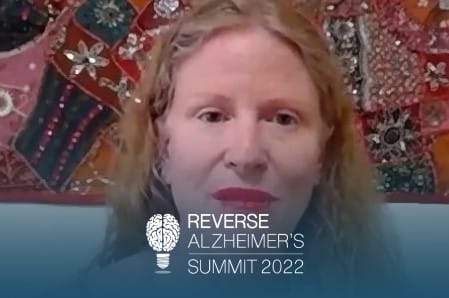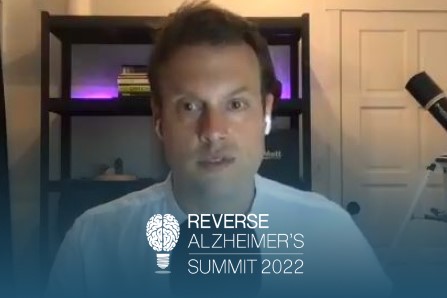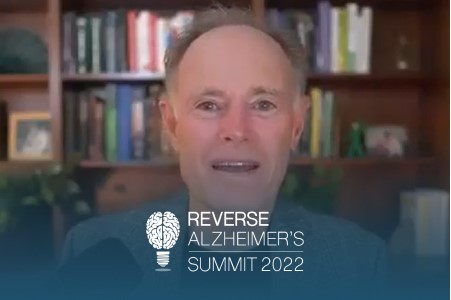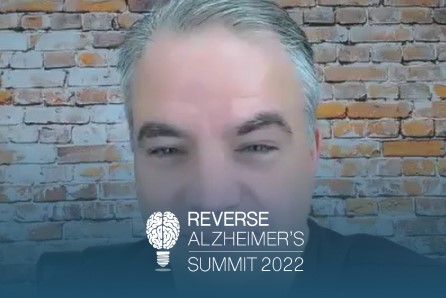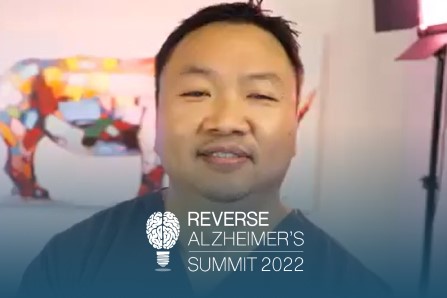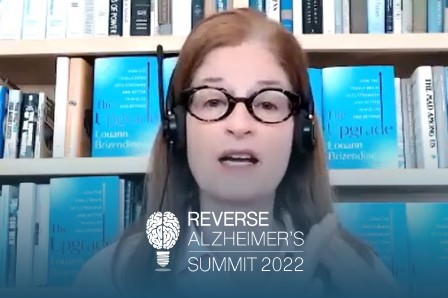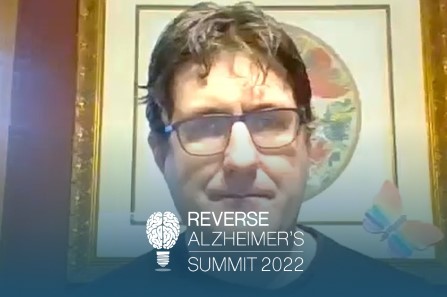Join the discussion below
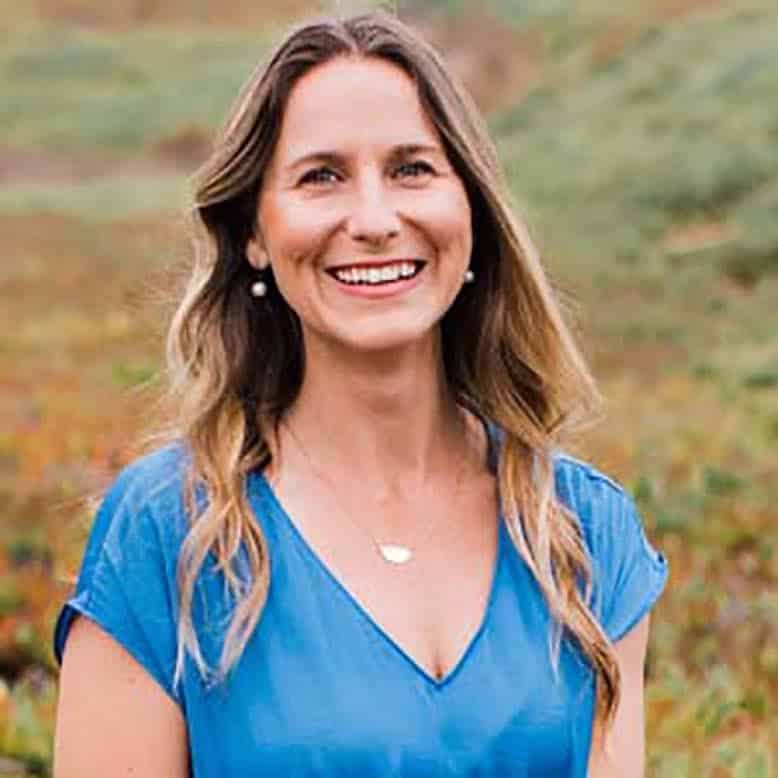
Dr. Heather Sandison is the founder of Solcere Health Clinic and Marama, the first residential care facility for the elderly of its kind. At Solcere, Dr. Sandison and her team of doctors and health coaches focus primarily on supporting patients looking to optimize cognitive function, prevent mental decline, and reverse... Read More
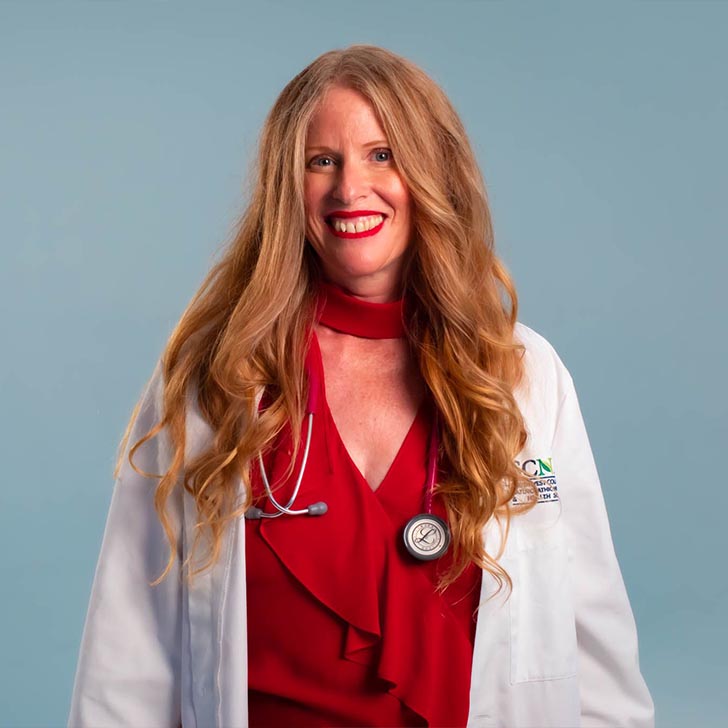
Dr. Sharon Stills, a licensed Naturopathic Medical Doctor with over two decades of dedicated service in transforming women’s health has been a guiding light for perimenopausal and menopausal women, empowering them to reinvent, explore, and rediscover their vitality and zest for life. Her pioneering RED Hot Sexy Meno(pause) Program encapsulates... Read More
- Reimagining healthy aging.
- Mastering menopause as an opportunity to live your best second act.
- The surprising connections between oral health and brain health.
Heather Sandison, N.D.
Welcome to the Reverse Alzheimer’s Summit. I’m really excited to introduce you to my friend, Dr. Sharon Stills. Like me, she’s a naturopathic medical doctor who helps peri-menopausal and menopausal women to pause and evaluate life so that they can live the second act of their story stronger, healthier, and sexier while aging backwards. Using her 20 plus years of experience, an extensive training and background in European biological medicine, antiaging therapies, and bioidentical hormone replacement, she has successfully helped thousands of women transition gently through the different stages of their lives, all with natural methods. Dr. Stills is passionate about spreading the word about her signature red, hot, sexy meno-pause program. The philosophy she developed for you to reinvent your health, explore your spirit, and discover your sexy you, so that you too can create and live the life you desire and deserve. She founded and ran one of the largest and most successful naturopathic clinics in the country for a decade, and is the host of The Science of Self Healing podcast. She’s an expert physician for Women’s Health Network and educates other physicians as the co-lead North American lecturer for the Paracelsus Academy in Switzerland. Patients work with Dr. Stills in a variety of ways through telemedicine consults, her life-changing retreats for individuals or small groups in healing and rejuvenating locations around the world. Some patients will even fly out to see her or fly in, fly her in just to get the chance to work with her one on one. We’re so lucky, lucky to have her here today. Welcome Sharon.
Dr. Sharon Stills
Oh, thank you. I’m, I’m just honored and it’s a pleasure to be here.
Heather Sandison, N.D.
So I’ve started a lot of the conversation today. Just acknowledging how much more frequently women are impacted by Alzheimer’s than men. So we know that two-thirds of the people diagnosed with dementia or Alzheimer’s are women. And we also know that it’s more likely to affect a woman as a caregiver for someone with dementia. So I wanna just talk a little bit about, you know, how you view aging and especially in this time, when so many more people are being affected by dementia and our baby boomers, this demographic shift is happening in society.
Dr. Sharon Stills
Mm. I think aging is something that we really need to reframe how we look at it because a lot of us think aging is this horrible event we’re gonna go through. And that, and as women, we are going to be put out to pasture, we are going to not matter, not be relevant, not be sexy. And I, and I just like to preface sexy. So just right now, even thinking about when you hear me say sexy, what does your internal thought process say? Where does it go? Are you thinking sexy is big boobs and a nice butt, or is sexy is this hourglass figure or is sexy being a size zero, or what, what do you think being sexy is? And then are those really your thoughts or is that just something you’ve heard over and over again and you’ve adopted as your thoughts? And so I think when we’re aging and when we’re meno-pausing, we have this real brilliant opportunity if we, if we grab it, if we embrace it to stop and pause and think about the things that we think and kind of discern out, oh, this came from my mother, this came from my reverend, this came from the media. So much of what we think is put into us by the media. And we don’t, we can, at any moment we can change, we can decide to think different things. We can have a new belief about what being sexy is and what sexy is to me may not be what sexy is to you. And I really believe sexy is a, it’s a whole being experience.
It’s how you move. It’s how you think. It’s how you feel. It’s how you speak. It’s how you participate in life. And so there’s so much more than your boobs and your butt. And so with aging, I really think that prevention and pre gaming is so important. And you talk about women being affected. And when we think about, for instance, the native cultures, the elders, the women, when they, when they stop menstruating, when they go through menopause, when their cycle’s no longer happening, that retention of blood is thought to be a retention of wisdom and that you’re not losing your blood every month, your wisdom to the earth, that it now stays within you. And you are now revered as this wise crone, as an elder. And I’m on a mission to see that philosophy, that energy sprinkle out into us here in Western society, that we as aging women are crucially important and we are wise and it’s, it’s okay to share that wisdom, to own that wisdom, to step into that wisdom. And of course, we need to do it with intention. And that means taking care of not just what we’re thinking, but also how we are treating our physical bodies. And so to me, when we’re talking about dementia and Alzheimer’s, these are things that if we, if we pre-game, if we think about what’s going on, we can really, really lessen the chance of that happening to us.
Heather Sandison, N.D.
I love how you put this meno-pause in there. This is this phenomenal opportunity right, to get intentional about the next phase of life. And I think we can all relate in those of us who are moms, right? We celebrate graduations and these milestones like birthdays and yet puberty, especially historically right in ancestral cultures. This is the, this big event, right? To go from not childbearing age into childbearing age, and then to transition out of it. And, you know, we do this with new jobs or graduating from college. I think it, it, when we, certainly graduating from medical school right, your, your identity shifts completely. And there is this moment where there’s an opportunity as, as we go towards it to say who do I wanna be on the other side of that? What do I want life to look like? And retirement is another one I think, and sometimes retirement and menopause are coming around the same time or your empty nesting is coming around the same time. And so I, I just love how you put it into that context of like this transition and this opportunity to really intentionally design what life looks like next.
Dr. Sharon Stills
Mm. And if we don’t do it, no one’s gonna do it for us. Not your best friend, not your kids, not your colleagues, not your therapist. It it’s really our time to do that. And, and I, and I do think I’m so big into rituals and celebration and I do think we miss the opportunities. So for me, when I went through menopause, I climbed Kilimanjaro and it just worked out perfectly because our bags got lost and our, our climb got delayed a day or two. And first I was really cranky about it. But then I just settled in, went with the flow. And so it turned out because of that delay, I literally stood on the top of Kilimanjaro one year to the day that I stopped having my period. So I was like, oh, thank you universe for, for losing my bags. I forget. It’s always, things are always collaborating in your order and conspiring in your order, even if you don’t realize it. And so for me, that, that, that’s certainly not to say all of you listening, that you have to climb Kilimanjaro to celebrate menopause. But to me, it was this way of saying, hey menopause, you don’t got nothing on me. This is just the sacred second act of my life. And I am ready for it and I’m, I’m throwing out because I’m no different than all of you. I grew up and had media and all of these things telling me what to think. It’s not like I just came out this way. I had to actively work to change what I believed about aging. And so this was my way of saying to myself, hey, I can do this. This is just the beginning. I’m just getting started. And I always tell women, if you, if you look at my website, I have a little story about it and I say, and you know, what’s your Kilimanjaro, because it certainly doesn’t have to be climbing Kilimanjaro. It could be leaving a relationship, starting a relationship, writing a book, finishing your book, learning to dance, growing a garden, baking paleo cake. Like it could be whatever is important to you because we all have different dreams and desires. And so I just want to inspire you to get in touch with yours.
Heather Sandison, N.D.
So tell me about hormones and what biological hormone replacement is spent, biological, bioidentical hormone replacement in particular has to do with aging, feeling sexy and the brain, especially.
Dr. Sharon Stills
Mm. So it’s, it’s a huge, huge piece. And we know that the loss of estrogen, but also progesterone and testosterone has a huge impact on the brain. They are neuroprotective against the brain. They’re helping with circulation. They’re helping with memory, with the hippocampus. And so no wonder when women go through menopause, if they’re not getting hormone replacement, they are ending up with a diagnosis of Alzheimer’s and dementia. And we’ve gotten such a bad rap. We’ve become afraid of estrogen. And so we’ve also become confused about why we would want to take hormone replacement. And I just wanna start by saying, every time I talk about hormones, I’m talking about bioidentical hormones. And every time you potentially go online or Google or read something about hormones, you’re probably not reading about bioidentical hormones. You’re reading about synthetic hormones that are pharmaceuticals that are, are not identical, bioidentical, identical to what we produce. And so it’s really an apples and orange situation. And I know it can be overwhelming.
And I know it can be scary because I have patients who have been with me for, I’ve been practicing over 20 years now. So I have patients who have been with me for 20 years. They’re on bioidentical hormones. They know me, they love me, they trust me. And then they go read something in the media and then they call and say, “Oh my God, Dr. Stills, is it okay? Should I, should I still be taking the hormones you’ve been giving me for 20 years that have been helping me feel amazing?” And I’m like, deep breath, exhale. It’s okay. Apples, oranges. They’re not talking about what I’m giving you. And then even within the realm of bioidentical hormone replacement, there’s also still this real misconception and fallacy about estrogen. And I see it all the time with other natural healthcare providers where, oh, I have a woman who has breast cancer or who had breast cancer, or who has a family history of breast cancer. And so I can’t give her bioidentical hormone replacement and I’m like, no, no, no, no, no, no, no. It’s so important. It’s so important. Estrogen. There’s different types of estrogens.
There’s different metabolites of estrogens and there’s different estrogen receptors. And so for example, estriol, which is E3. So we, we talk about E1, estrone, E2 estradiol, E3 estriol, those are the common ones we talk about. And so estriol E3 affects the beta receptors, which are a inhibitory, not a proliferative. And so proliferative think yes, potentially growing could cause cancer growth. Inhibitory does the exact opposite thing. And so estriol is actually something, get ready, I use to treat breast cancer, to prevent breast cancer, to help breast cancer recurrences not occur. There’s also metabolites of estrogen, such as 2methoxyestradiol, which also is another that I learned very early on from my studies in Europe is used to treat cancer. And so, again, it’s this whole, there’s so many women who are not being given estrogen and then their brain is suffering because of these misconceptions. And so that doesn’t mean you can just run out and ask for bioidentical hormone replacement. You need to work with someone who understands which estrogens are safe, how to monitor you, how to, how it’s metabolizing, how to administer it to you and so on and so forth. And so I’ll give you a couple of quick tips when it comes to that. If anyone wants to give you oral estrogen run, run, run.
Heather Sandison, N.D.
It still shocks me that I have women come into my office and they’re on oral estrogens. And I’m like, who, what, how is anyone getting away with this? How is it even available anymore? I thought we were clear. After the women’s health initiative study. Like that was one of the clear things that came out of it. No oral estrogen, you do not take by mouth.
Dr. Sharon Stills
We know that it raises for instance, C-reactive protein, which is an inflammatory marker. And we know that Alzheimer is an inflammatory process. And so no oral, creams are best applied vaginally to the external labius. So you’re getting mucosa absorption, not dermal absorption, where you can get fatigue, monitored appropriately in 24-hour urine tests, not through blood work, can’t even really monitor metabolites or anything. So just some things to be thinking about when you’re looking for someone to help you. Those are just a couple of quick check marks. If they’re not doing that, maybe look for someone else. And then the other thing with bioidentical hormones, which I sing from the rooftops all the time, is about prevention. And so if you’re listening and you’re you’re here and you’re concerned about your brain, you might not be thinking then hormones are something. Aren’t hormones just to get rid of my hot flashes? And so I am constantly educating patient, whoever will listen, that bioidentical hormone replacement is not just to get rid of hot flashes. It is part of an overall plan for healthy and graceful and cognitive aging. And so we know that without estrogen, the brain function is going to decrease.
And so, yes, it’s nice to get rid of hot flashes, but I have patients all the time come to me and maybe they’re postmenopausal or they’re at the end of peri or they’re in peri and they don’t come for hormones. They come because they’re concerned about their brain or they’re concerned about their gut, or they have cancer auto, whatever reason they come. And to me, bioidentical hormone replacement because I wanna have a healthy brain. I don’t wanna age if I’m not cognitive and I can’t remember, and I can’t interact. I’m not about lengthening the lifespan, but having it be a poor quality, I’m about lengthening it and being high, high quality. And so even if they come to me for something else, maybe it’s arthritis, whatever. I’m always introducing the bioidentical hormone conversation because I want their brains and their bones and their breasts and their cardiovascular. I want this to be protected. And so they always walk out going, oh yeah, I want that too, because Alzheimer’s is scary.
Heather Sandison, N.D.
So are falls, breaking bones.
Dr. Sharon Stills
Yeah. Yeah. So it’s, it’s scary, scary stuff. And I’m always like, as a naturopath thinking, I know you think this way too, as a naturopath, you know, what is the, what is the least I can do to have the biggest effect? And what’s the root cause rather than chasing and throwing this supplement at this symptom and the supplement at this symptom, you know, what can I do across the spectrum? And to me, bioidentical hormone replacement done wisely and carefully and safely is such a, it’s such a heavy hitting win. And I’ve been practicing for 20 years. I have patients from newborns or patients who aren’t even born yet, ’cause they’re, they’re in the womb and I’m helping the mom during a pregnancy to patients who are 100 and even over 100 years old. And my patients who are on bioidentical hormones, we just don’t see the cognitive decline. They’re, they’re, they’re rock stars. And a lot of the times it’s because they started early. They, they pre-gamed. We need to be thinking about, you know, it’s funny because I teach mindfulness meditation and we can talk about the impact of stress. So I’m all about be in the present moment. But while we’re in that present moment, we also have to be thinking about the future and how in the present we can be making choices to protect our health and preserve our health in the future.
Heather Sandison, N.D.
Not a scary way, but in an informed and empowered way. Right? There’s, there’s a difference there. Not because I’m fearful of my demise, but because I look forward, we can, we can reimagine what healthy aging looks like if we take the science and, and the insights from experts like you and apply them now. So I, I wanna talk about the connection between teeth and the brain. Would you go into that a bit?
Dr. Sharon Stills
Sure. And it’s so funny ’cause I probably there’s, there’s certain things and we’re, we’re kind of touching on here. I can’t get through a conversation about health without talking about bioidentical hormones, your teeth and stress. And, and everyone’s always like, aren’t, you’re not dentist, are you, aren’t you a naturopathic doctor? But because I was very fortunate to study over in Europe as I was in naturopathic medical school here in the States, I, I always say I grew up as a bioregulatory physician and that’s the way I think. And so I used to, to think that our teeth were just about going to the dentist once a year and making sure we didn’t have cavities, but our teeth and the microbiome of our teeth and the connection in our teeth has so much to do with our overall health. And so often patients come to me and I run thermography scans, which are, is contact regulation thermography. It’s a little different than the, the picture ones where you just go get a picture taken. I’m actually taking temperature readings all over your body and from all your teeth. So it’s this fantastic tool to use to see how the regulation of your teeth is doing and how your autonomic nervous system doing is and how it’s affecting the rest of your body. Because we have to remember that every tooth is attached to a acupuncture meridian. And so for example, our front two teeth are related to the kidney and the bladder.
And so if we have root canals or fillings or cavitations or galvanic problems going on ’cause we have too many metals in our mouth, then that’s gonna affect the organs as well. And we see a huge correlation with the upper molars. That’s the stomach meridian tooth and the breasts are on the stomach meridian. And so the breasts are part of the stomach meridian and women who have root canals in these teeth, we see a huge correlation with developing breast cancer. And so when we’re thinking about our brains, one of the other big factors is toxicity and heavy metals. And the, the root of that is often right here, right below your brain in the head, with your teeth. And so we can’t have good health. We can’t have healthy brain aging unless we have really addressed, and this is never a fun conversation. So I’m gonna take a breath, exhale, ’cause I don’t know what’s going on in your mouth. But I, I just know from working with patients all these years, it’s never a fun conversation to talk about the mercury in your mouth that is affecting your brain health or the low-grade infections from a root canal that are affecting your brain health and the bacteria that is now circulating up there or the congestion that is not allowing lymphatic flow so the brain can’t drain. And so a lot of times when patients come in my office, I, I just start talking about their teeth and then sometimes they’ll say, I can’t afford you and the dentist. And then I’m like, love you, later, go to the dentist. I can’t help you. It’s gonna be a lot harder. I’m never gonna get full resolution if this isn’t taken care of first.
And so we have to be thinking about, and even our tonsils. So when I run thermography scans, I’m also measuring the tonsils which are lymphatic tissue. And whether you’ve had your tonsils removed or not, they can be a blockage. And so from a European bioregulatory perspective, before I even start going in and giving you hormones or giving you supplements or whatever, I’m looking at the overall system. Are there any regulation blockages that are occurring and this can be things going on in the teeth, it can be your tonsils being blocked and not regulated. It can be scars on your body that are crossing meridians and changing the polarization of your cells and your autonomic nervous system. And it could be heavy metal intoxication. There are these regulation blockages that don’t allow the nervous system to regulate. And so the tonsils in the mouth are one of them. And if you don’t have tonsils that are regulating, again it’s gonna be hard for the brain to drain. And so often, and even if you’ve had your tonsils removed, there could be a scar there. So often we have to go in and inject into the tonsils, a little bit of procaine, a little bit of a homeopathic remedy, and we have to open up the area and sometimes it’s one injection and sometimes it’s four.
It just depends how your body responds and how bad the blockage is there. And when we have swollen tonsils or kids, we call ’em kissing tonsils sometimes. And it, it drives me crazy because they just wanna go in and take out the tonsils and think that’s gonna solve the problem. But that is a response from the body. And often that is the small intestine and the Peyer’s patches there in the lymphatic system there are blocked. And so you’re seeing it reflected in the tonsils. And so we always have to trace things back. We have to look at the causal chain of what’s going on and where it’s coming from and what other organs are affected. And so if you wanna have healthy brain function, you have to have a healthy mouth. And that means removing your amalgams, your silver fillings and preparing the body. So making sure you’re among your emunctories, your eliminatory organs are open and draining your lymphatic system, your bile, your gut, your liver, your kidneys, your lungs, your skin, making sure everything is open and making sure you find a bioregulatory dentist who knows what they’re doing. One of the things that makes me cringe the most is when I have a new patient come in and they’re like, yes, I removed my amalgams.
And it’s so amazing that they thought they were doing good for their body but then I find out they did it with their local dentist and they weren’t prepped and they weren’t prepared and it wasn’t done properly. And now they have this huge load that’s going to the brain, that’s going to the body, that’s affecting the organs. And now we have to go in and really do some serious detox. And even if you’ve had your amalgams removed, remember that they were sitting in there dripping and excreting and toxins and mercury, a neurotoxin, the worst neurotoxin. And so you have to go in and look, what is the body burden, what’s left? Because I’ve seen that a lot where patients come in and they’re like, oh yeah, I had ’em removed. And I had ’em removed properly. And I’m like, Woohoo, good, good, good. But then no one ever looked to see, well, what was the effect? Like we’ve removed the source. And certainly if you’re gonna be doing heavy metal detoxing, you don’t wanna start a heavy metal detox. When you still have a source in your body, you need to remove the source first. But once you’ve removed the source, you have to look at what’s left and then escort that out of the body as well. So there’s lots of things. There’s root canals that if, if a, if we need a root canal, that means the tooth is dead and teeth, we don’t think of ’em, but teeth are organs.
You know, they have lymphatic supply and blood supply and they are organs, they’re living. And we would never keep a dead necrotic organ in our body. And yet we think it’s okay to do that with our teeth. And when you get a root canal, there’s all these horizontal channels that are coming off the root canal where bacteria, it just can’t, they can’t get in there. They can’t clean it out. And so all this bacteria is lingering and it’s this low-grade chronic stress to the immune system. And it’s this inflammation that’s now affecting the brain. We also have, if you have a lot of different metals in your mouth, then there can be galvanic currents, and that’s causing currents to the brain that shouldn’t be there. And I, I just wanna bring up cell phones. And I don’t know if you’ve talked about this or not on your, on your summit, but electromagnetic frequency and the brain is a huge thing. And so reexamining your relationship, your marriage to your cell phone, ’cause let’s face it. We’re all married to our cell phones. We’re all cheating on someone with our cell phone, right? Like we’re, we’re with our cell phone more than we’re with anyone or anything of, you know. And so we have to really think about that. Like, do you put your cell phone to your ear? Do you feel the heat? That is affecting your brain. That is causing a lot of issues.
And so are you sleeping with your cell phone on your dresser? Are you, and I just got reminded of this the other day in an interview I did on my podcast with someone who’s a specialist in EMFs. Are you talking on your phone in the car? Because the EMF, the microwaves are just bouncing off the roof and, and I’m like, well, what if I put down my top on my convertible? Does that count? I always am like, oh, phone is such a great, I mean, car is such a great place to catch up on your conversations. But after that, now I’m like, okay, radio it is, I’m gonna be talking to my peeps less. And so earbuds. Yes. So, oh, I cry every time I see someone wearing earbuds or those AirPods, or even just regular headphones. This is concentrating the energy so close to your brain and it has such detrimental effects. So the only way I talk on my phone is on speaker and I keep befriending airplane mode more and more and more. And so when we’re thinking about brain health, we just really have to think about these, these unseen toxins. We can’t see the bacteria in our root canals. We can’t really see the frequencies coming off of our cell phones or even our computers. I use, I have a thing that I stick in my USB port that I got from Germany that I use with patients and it changes the magnetic field of what’s coming out of my computer.
And we have to always be thinking about these things. Our wifi at night and sleep is such an important piece for brain health, right? And so we’re talking about the mouth and then I’m thinking about sleep, ’cause now I’m thinking about the lymphatic system and that’s the lymphatic drainage system of the brain. And we need that to get rid of the proteins that don’t belong there and the plaque that don’t belong there. So we need to have downstream. That’s why I’m obsessed with the mouth and am obsessed with the lymphatic system. And we have the, the thoracic duct here on the left side. And you know, this is a main dumping point and we have lots of lymph under here and here. This is when I do thermography scans on patients. If there are new patient, this area is always lit up because we don’t really pay a lot of attention to this area. And there’s so much lymphatics. So we have to open this up. So when we sleep at night, because we have to be able to sleep and get into deep REM sleep for the brain to cleanse for the lymphatics to flow. And another just good tip, sleeping on your left side encourages lymphatic flow. It’s it’s do if you can sleep on your left side, it’s gonna help your brain drain better. Also inclining your bed. So, and if you just have a regular bed like I do, I bought blocks that I can put under the bed to raise it up like six inches. You can put books, but getting the book up so you’re encouraging, you know, just a gentle incline. So you’re encouraging the cleansing. And so we discount the importance of sleep. But when we’re talking about brain health, if we don’t sleep, we don’t detox the brain. And so we wanna have that lymph flowing. We wanna have the lymph flowing. It’s some of the most important things you can do to help detox, to help preserve your brain, to help keep it healthy.
Heather Sandison, N.D.
Yeah, so glad you’re mentioning these things because it is so easy to say I’ll sleep when I die, right. Or there’s all these other really important things, especially for caregivers who are listening or there’s so much to do in our day and there’s this glorification of busy. And so we’ll put off something like sleep when really it’s so foundational. And I’m just so grateful that you said what you did about prioritizing the dentist. ‘Cause I have a very similar conversation with my patients who say they have to choose between seeing me or seeing the dentist. Go see the dentist, right? If there is a financial constraint or time constraint, any sort of constraint, if there’s a significant piece in the mouth, we’re not gonna make much progress until that’s resolved. And I would’ve thought, you know, had you told me this 15, 20 years ago before I had trained, before I had seen with my own eyes, patients really significantly affected by in a positive way, by having root canals removed. I would’ve thought you were crazy saying all this stuff, right? Like there’s so many people who have root canals that have no problem, right? And so the, the narrative gets perpetuated that they are risk free when that’s not accurate, right. That there are people who are severely affected. I’ve seen patients who have autoimmune conditions they’ve had for years resolve overnight, essentially when a root canal is removed. And when you see that enough times, it’s like, that’s really something to pay attention to. So.
Dr. Sharon Stills
I mean, I wanna, I forgot. I wanna bring up also implants. I didn’t mention implants. And typically implants are titanium and titanium is just as toxic as mercury. And so again, you wanna be working with a biological doctor, who’s using a clean system, who’s using ceramic, zirconium, who’s putting healthy implants and it, it it’s horrible. I mean, I have patients who just come in and five months ago they spent 20 grand to put toxic implants in their mouth and it’s like, ah, I hate having that conversation. But it’s a conversation that needs to be had. And I too would’ve thought it was insane. And I, I always tell this story of when I was new in practice, one of my mentors from Austria came to be at my clinic. We were giving a lecture together and I said, see patients with me for today. And he wanted to watch me see patients. And I was like, no way, I’m watching you see my patients. This is a learning opportunity for me. And one of our first patients, ’cause I work with a lot of patients who have oncology diagnosis, was a patient dealing with a cancer diagnosis. And he just whipped out this piece of paper and drew her mouth and looked in her mouth. And I had to kind of like talk her down afterwards ’cause she was just, she’s like I thought I was coming to like get a diet and some herbs and now I have to go, you know? And it is, it’s kind of shocking, but it is. I, I wouldn’t be saying it and I’m glad you see it too. It’s it’s such, such an important piece. We have to, in Europe and the clinics I’m affiliated with and work with, the dentist and the doctor, they’re all under the same roof. They work together. They have meetings, medical, dental meetings about the patient they’re seeing. And the patients typically see the dentist first. Then they come to the doctor. Makes our job as doctors a lot easier.
Heather Sandison, N.D.
We know that health starts in the gut and the gut starts in the mouth. So why would you, it’s sort of like, why would you start anywhere else? Especially if there are issues from it and the other piece, the connection between the teeth or the mouth and the sleep is the airway, right? Is, is our airway open and what we’re eating, I was, it might have been in James Nestor’s book, “Breath”. I don’t know if you remember that part or if you’re familiar with that book, but it’s a phenomenal book, but he talks about how, because we’ve grown up. And so many people in our society eat really soft foods as children we don’t develop a palette that it, our pal is too arched. We don’t have a, a flat pallet the way our ancestors, our hunter gatherer ancestors who are gnawing on bones, I guess had. And so it closes up the airway. It, of course it affects our teeth. Our teeth are, are less, have less integrity. So they’re more apt to get cavities and infections. But it just really interesting kind of thinking about some of the ancestral diets we talk about with keto and, and how even with young children, our, our modern day society does not really set us up for healthy success. And, and starting to think back through that, what are those pieces that are really critical to the development of our airway, our brains, our mouths, all of these pieces that really impact the way that we age in our, in our health for a lifetime.
Dr. Sharon Stills
So, so true. The airway is important. There are many dentists who will specialize and focus on airway and make sure you are breathing through your nose and not through your mouth. And these are important, important pieces. There there’s, there’s so many, and sometimes it can be overwhelming, but if you just kind of take it as there’s so many pieces and so many things that you have control of, that you can do on your own, that are within you. I always say our breath is truly our greatest healer. It’s our best medicine and wow, it’s free and it’s here and it’s always with me and it’s not going anywhere until I take my last exhale and transition to, to another plane. And so we have to really be focusing. And when you think about hormones and I, I didn’t bring it up, but I do wanna bring it up. We talked a lot about estrogen and progesterone, testosterone, the sex hormones, but we also wanna think of the other hormones. So we wanna be thinking about insulin and cortisol and the huge effect they have on brain health. And we wanna think about thyroid and so free thyroid hormone, T3 has a huge effect on our cognition. And so all of these hormones, it’s this whole symphony and we really want to be addressing. And so insulin is dealing with how we’re eating, how we’re moving, how we’re sleeping. Our cortisol is how we’re responding to stress and how we’re responding to inflammation and how our blood sugar is fluctuating. We’re thinking about our thyroid. And so we have to, when we talk about hormones, I talked a lot about the sex hormones, but within that, I’m always also looking at all the other hormones. And so when you’re putting together a healing hormonal plan for brain health, you don’t wanna forget about these other hormones, either.
Heather Sandison, N.D.
So important to be working with a doctor who can really appreciate the complexity, hold it all, measure it all potentially, and then support you in that. Dr. Stills, Sharon, it’s a pleasure to have you here. And this has been such a just eye-opening conversation. I hope that you all are taking away some things you can implement today for a healthier brain. I wanna make sure people know where to find out more about you.
Dr. Sharon Stills
I am Dr. Sharon Stills. So when you Google that you, you find me, but my website is Drstills.com. And if you’re interested in more about hormones and menopause, I’m hosting a summit. That’s how we met each other. We are summit sisters. And so I have an upcoming summit as well, where we’ll really be diving in. And Dr. Heather will be there giving a talk too. So be sure to check her out.
Heather Sandison, N.D.
Yes, it’ll be a privilege. So your summit on hormones at menopause will go live in September of 2022. Do we have a name for it?
Dr. Sharon Stills
Mastering the Menopause Transition.
Heather Sandison, N.D.
I love it. I love it. All right, so if you want more information, if you wanna dive deeper into that, then stay tuned, make sure you’re on the email list and you will get, be notified when that summit goes live. Again Sharon, thank you so much for joining us. It’s been an absolute pleasure having you.
Dr. Sharon Stills
Thank you. And thank you for the amazing work you’re doing on such an important topic.
Heather Sandison, N.D.
Thank you. You as well. It’s a mutual admiration.
Dr. Sharon Stills
Girl crush.
Downloads

